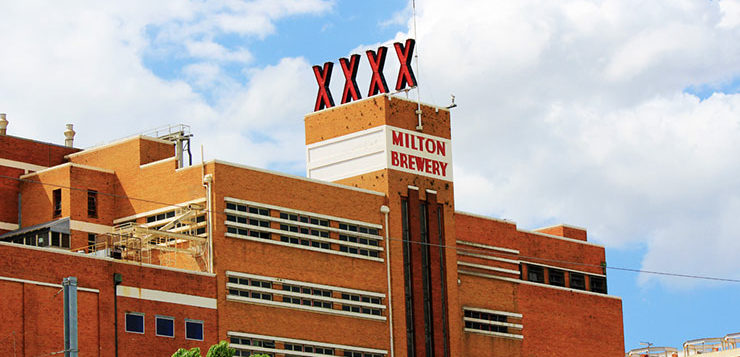Gutting the rights of Australian workers starts with undermining unions, and the right to collectively protest. And the recent experience of Lion Brewery workers is the case in point, writes Giri Sivaraman.
Last week the owners of Brisbane’s iconic XXXX brewery at Milton announced redundancies across a range of roles. This decision, which came during a good faith bargaining process, is just another recent example of the crippling of union strength and activism, which has been systematic for many years now in this country.
United Voice called out brewery owners Lion for engaging in a process of casualisation by stealth, but was prevented from protesting and taking industrial action to protect the jobs of existing workers by the Fair Work Commission. As a result, Lion will be allowed to bring on cheap labour hire workers whilst the existing brewery employees lose their jobs.
The ability of unions to advocate for better standards and galvanise support amongst members has been crippled by employers and regulators for decades. Removing the right to strike on fundamental issues like a cap on the use of casual labour or the employment of contractors undermines the existing workforce.
The right to strike and protest unfair treatment is an essential tool used by unions and workers to promote better workplace conditions and take action on key workplace issues. It’s a fundamental measure of the democratic values that Australia boasts. However, severe restrictions on this right cast a heavy pall over unions.
Even raising awareness of worker exploitation comes with its own risks as successive conservative governments also moved to enforce prohibitive penalties against unions, their officers and individual employees for sympathy strikes. Just this week construction workers were fined for taking part in a rally about worker’s rights.
Historically, unions have been instrumental in monitoring and enforcing employers’ compliance with minimum workplace standards. However, due to continued and sustained attacks from conservative governments, union powers to investigate and prosecute employer contraventions of labour and safety laws have been greatly eroded.
This has been exacerbated by the rigid right of entry laws which continue to operate under the current legislative regime, under which mistakes in giving notice of entry can lead to complete exclusion from the workplace. Stopping work because of a suspected safety breach is also a high-risk activity for unions as fines and damages for unlawful strikes can lead to enormous penalties and damages.
Under national OHS harmonisation unions have lost the right to commence prosecution for unsafe workplaces, and prosecution of underpayment is also a costly and time-consuming process that can take many months or years.
A number of recent investigations have revealed the dark underbelly of wage theft and exploitation in numerous industries largely due to poor regulation and this long-term erosion of union power. For example, the Inter-Agency Phoenix Task force comprising of 32 Federal, State and Territory government agencies revealed illegal phoenix activity over 2 years robbed workers between $31- $298 million in unpaid entitlements.
Studies have also shown high levels of unpaid work experience, and very high underpayments for migrants and international students. The Fair Work Ombudsman’s monitoring has found consistent non-compliance for payslips and pay rates.
Over the last two years across state and federal governments, there have been inquiries into the labour hire industry, exploitation of vulnerable workers, the operation of franchises and wage theft. Indeed, I appeared on behalf of unions and workers in all of the above inquiries. Exploitation of workers and flagrant disregard for industrial instruments and laws has featured heavily every time.
With unions sidelined, their ability to enter workplaces and ensure compliance heavily circumscribed, and their voices highlighting workplace exploitation at risk, governments at a federal, state and territory level are now being forced to step in an act where entrenched exploitation of vulnerable workers has become the norm.
The real solution would be reinvigorating union rights such as prosecution for wage theft, better right of entry and a genuine right to organise and strike.
It shouldn’t be a barbeque stopper that someone supports unions or that unions should play a central role in industrial relations in Australia. It should be accepted as an integral part of our democracy and industrial justice.
Donate To New Matilda
New Matilda is a small, independent media outlet. We survive through reader contributions, and never losing a lawsuit. If you got something from this article, giving something back helps us to continue speaking truth to power. Every little bit counts.




